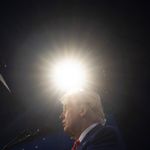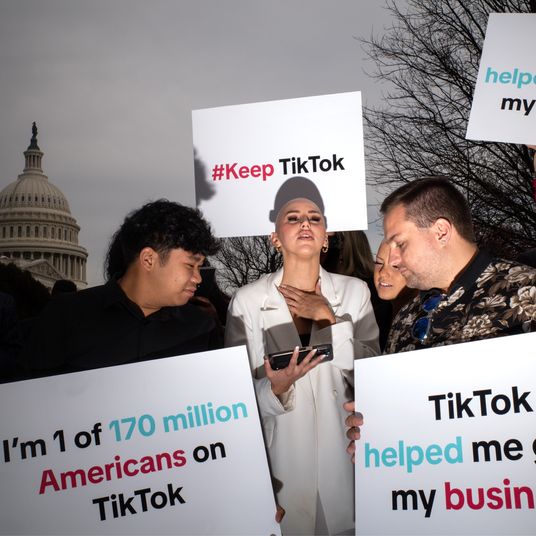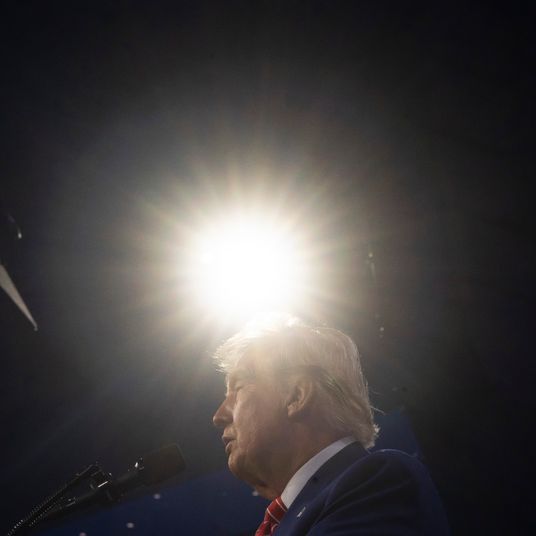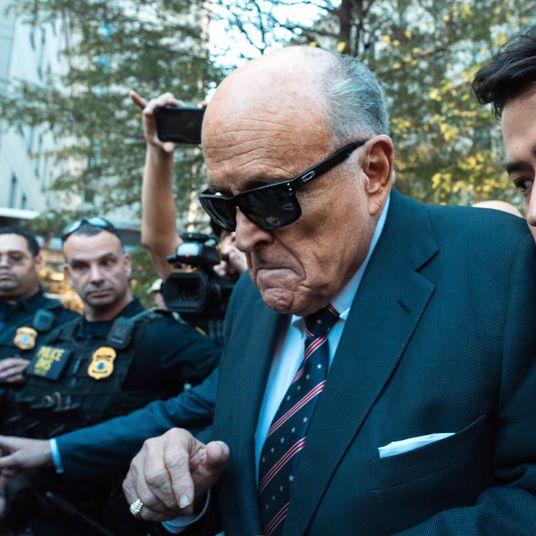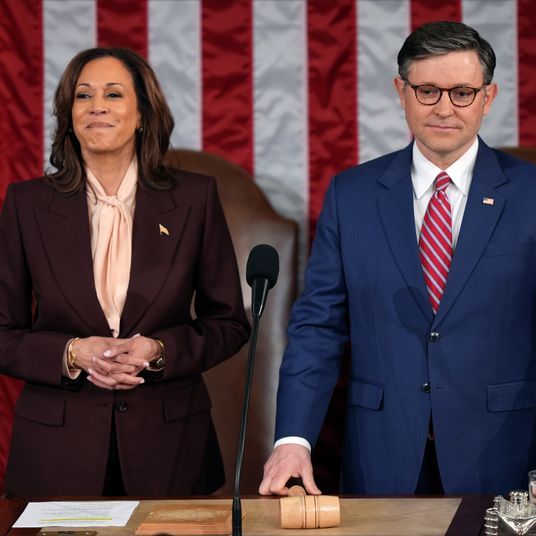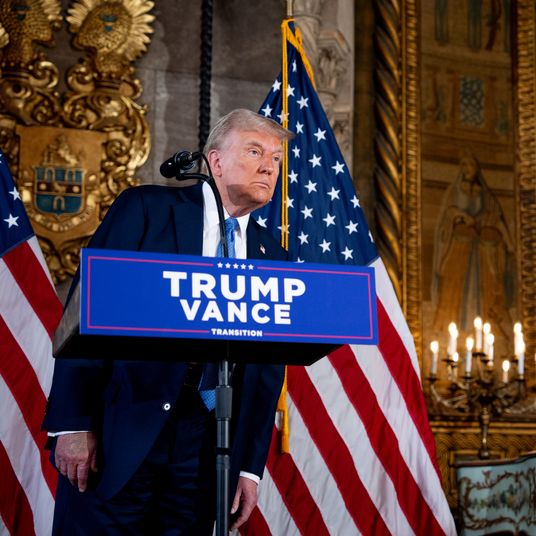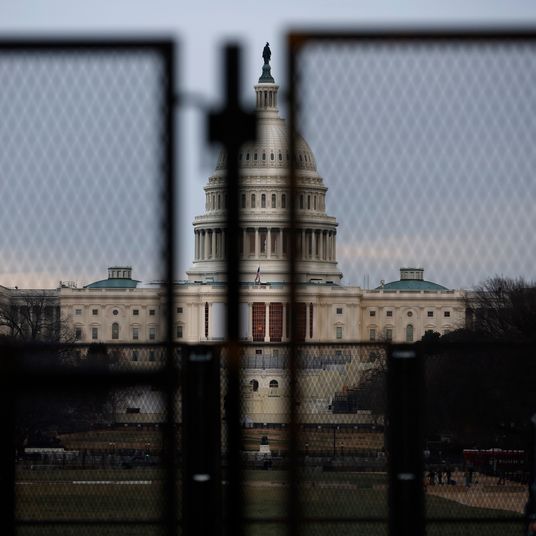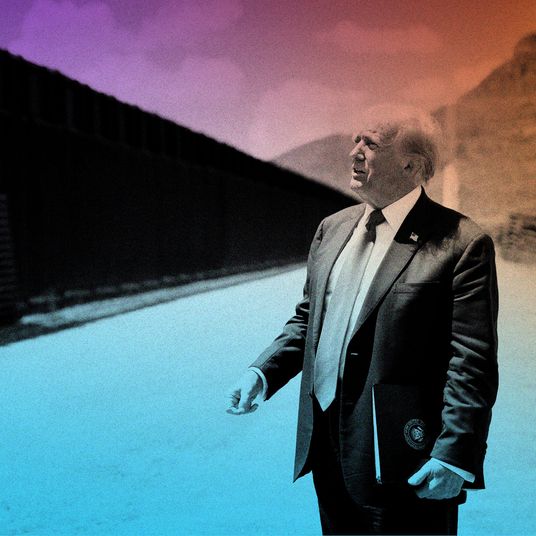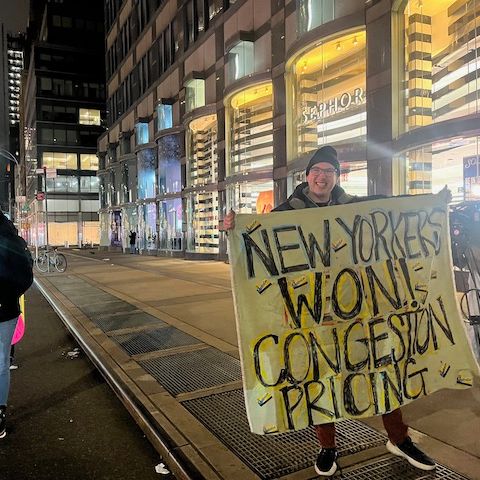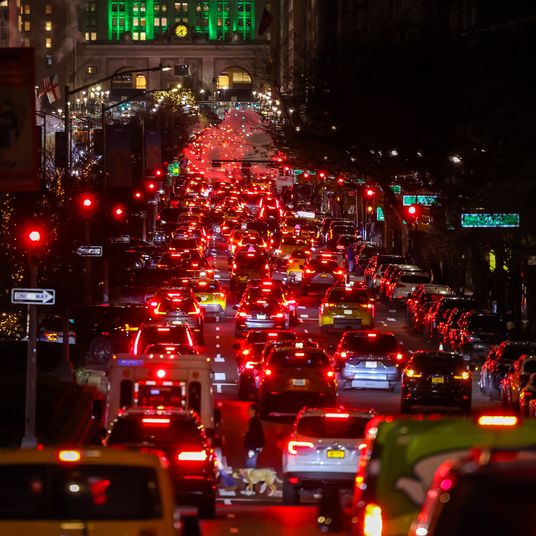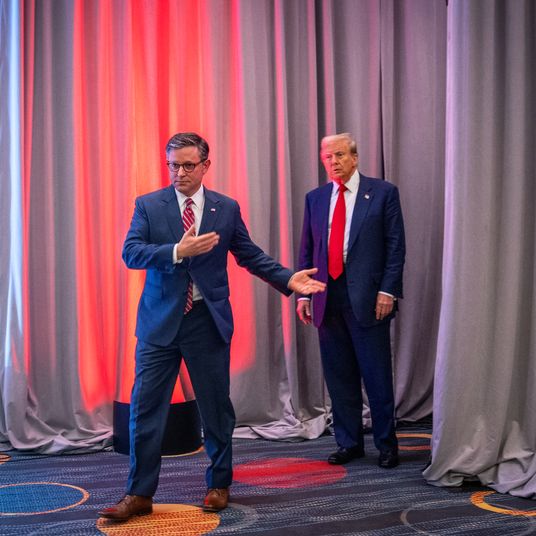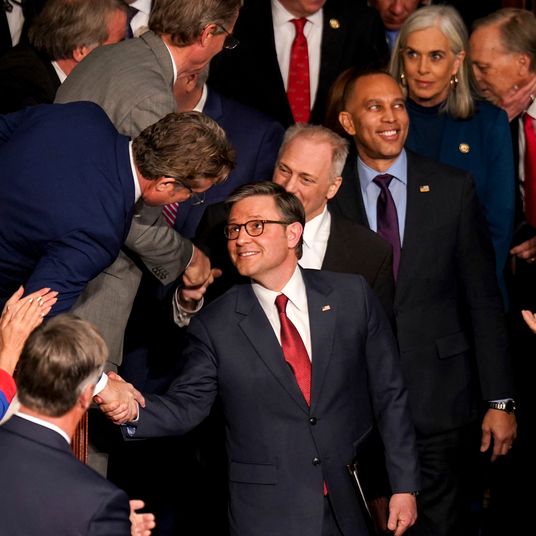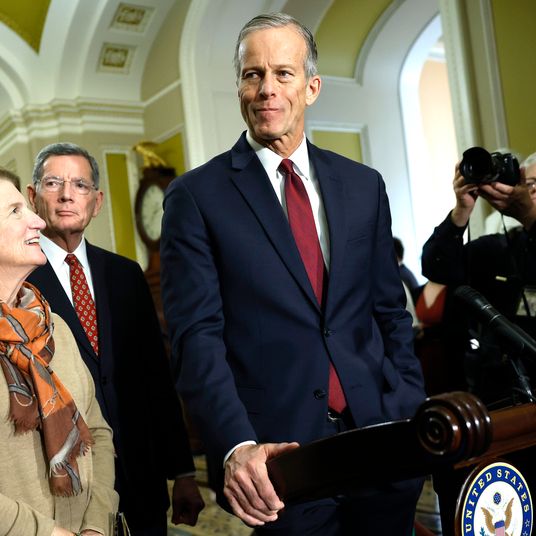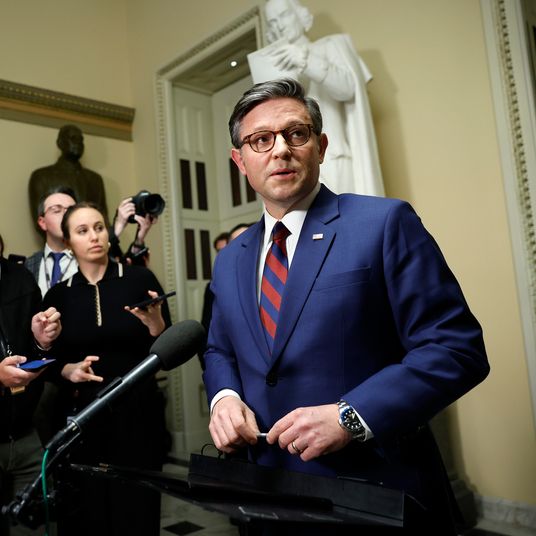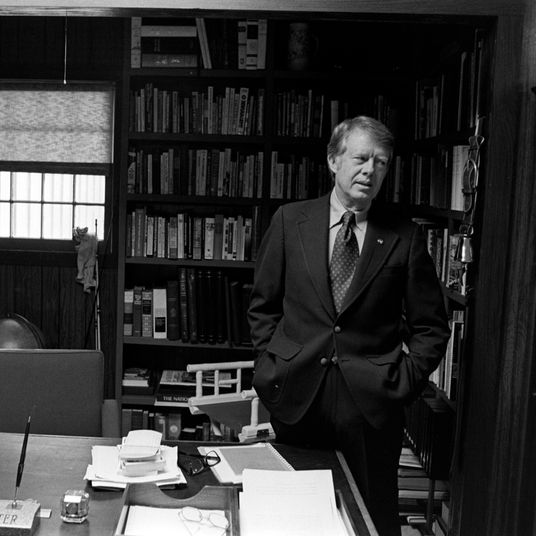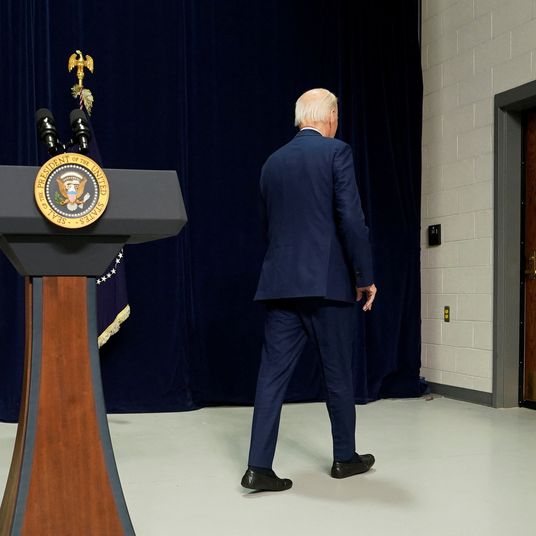
As Donald Trump started shambling toward the exit of the U.S. presidency last week, the U.S. left confronted the pivotal question hanging over our newfound interregnum: Who gets to say, I told you so?
Since well before Trump’s election, progressives of various stripes have vigorously debated how to characterize the mogul’s brand of demagogy, and the threat that it posed to American life. Was Trump an “authoritarian,” a “fascist,” or a “typical conservative”? Was his open contempt for the rule of law a threat to Americans’ most basic freedoms, or an edifying illustration of our nation’s preexisting unlawful disorder, the mogul’s signature shamelessness making it easier for voters to see the rot in their republic, much as a caricature illuminates the flaws in a human face? Most critically, what was a bigger threat to the progressive project in the United States: the mainstream media’s inveterate “both-sides-ism” and attendant complacency about the GOP’s burgeoning contempt for democracy — or the anti-Trump movement’s embrace of a “tyrannophobic” politics that obscured the material roots of right-wing populism, muted the ideological distinctions between Bernie Sanders and Bill Kristol, and privileged the defense of democratic norms over making our democracy responsive to the needs of working people?
The salience of this division waxed and waned over the course of the Trump presidency. But as the GOP incumbent settled on a reelection strategy that involved sowing doubt about the legitimacy of mail ballots, and preparing a legal strategy for disqualifying as many of them as possible, liberals and left-contrarians exchanged allegations of alarmism and complacency with renewed fervor. Their disputes only intensified after Election Day, as the president mounted his most unabashed — and arguably, most impotent — assault on democratic governance in the U.S. yet.
Since November 3, Trump and his allies have fomented baseless allegations of industrial-scale voter fraud in Democratic cities, filed a variety of spurious lawsuits aimed at halting vote counts in battleground states, implored Republican election officials to block certification of vote counts, and called on GOP-controlled state legislatures to simply nullify the will of the voters and appoint pro-Trump electors. In the process, they have convinced a majority of Republican voters that Joe Biden’s minions stole the election from him.
And yet: Trump’s lawsuits were laughed out of court, key Republican state legislatures rebuffed his requests to nullify the popular will, and the president’s administration, however belatedly, initiated the formal transition process last week. The Trump era ended with a whimper, not a bang. And a thousand Twitter debates over the definition of “coup” ensued.
Most progressive commentators took Trump’s naked attempt to retain power through mass disenfranchisement as vindication of their darkest interpretations of his politics and presidency. Popular faith in the authenticity of vote counts is a precondition for a minimally healthy democracy. Trump waged war on that faith, as no losing president had done before. What’s worse, his quixotic attempts to overturn the results revealed that the bulk of Republican officialdom was prepared to either quietly abide anti-democratic treachery, or actively abet it. Liberal alarmism had, therefore, been realism all along. As my colleague Jonathan Chait recently put it, “these weeks of chaos will remove all doubt of something Trump’s critics have long maintained: The American experiment would never have survived a second Trump term.”
To left-wing contrarians, meanwhile, describing Trump’s antics as a “coup” was nearly as absurd as Rudy Giuliani’s legal theories. This was not a violent seizure of power aided by state security forces or paramilitaries. It was a litigious billionaire adapting his tantrums into legal briefs until Republican judges tossed them aside, and Republican officials (however belatedly) nudging him toward a tacit concession. To believe that the United States was on the precipice of autocracy was to fundamentally misunderstand the obstacles to left governance in this country. As the socialist historian Matt Karp argued, “U.S. institutions aren’t weak at all, but in fact quite robust, against both the whims of lazy TV strongmen and also the will of the democratic majority.”
There are very fine people on both sides of this dunk contest. Each general tendency has its insights. The left-contrarians are right that the risk of Trump retaining power through a coup — whether a literal military putsch or a figurative judicial one — was greatly exaggerated in some quarters, especially after it became clear that any such scheme would require invalidating tens of thousands of votes across multiple states. There is little incentive in the news media to frame novel developments in anything but the most incendiary terms that one can reasonably defend. Cable news faces more competition, from a wider array of televisual amusements, than ever before. The digital news landscape is largely populated by ad-supported outlets fighting each other for eyeballs in a content-saturated market, often to the death. For these reasons, coverage of Trump’s flirtations with authoritarianism often err on the side of alarmism. And this has real costs (some of my own friends and family members were still living in fear of Amy Coney Barrett anointing Trump the election’s victor long after that ceased to be a remote possibility).
More broadly, the contrarians’ aversion to “presentism” — the media’s tendency to exaggerate the novelty of emergent events and elide narrative-defying precedents — is salutary. Trump’s wildest ideas for perpetuating his own power are unprecedented in their authoritarianism. But his incompetence and unpopularity arguably rendered him a less effective agent of illiberalism than his Republican predecessor. Under George W. Bush, the U.S. government expanded its capacity for domestic surveillance by an order of magnitude. Military torture became official state policy. The Justice Department launched a years-long fishing expedition for evidence of voter fraud that could be used to rationalize vote-suppressing remedies. And, of course, the U.S. government launched a bloody war of aggression, which it sold to the public on the basis of lies.
That the public figure who orchestrated all this was a jovial man of faith fluent in our polity’s pieties — rather than a malignant narcissist with a penchant for public cruelty — made Bush’s brand of authoritarianism more culturally dominant than Trump’s ever was: When a national crisis struck on Bush’s watch, cable-news networks clamped down on dissent while the American public rallied behind their leader. From the Trump era’s first days, on through the COVID pandemic, CNN, MSNBC, the New York Times, and the Washington Post (rightly) took a more adversarial posture toward a sitting president than they ever had before (or at least, in the case of the newspapers, at any point in their modern histories). Meanwhile, the American people responded to Trump’s election by drowning the ACLU in donations, organizing the largest protests in U.S. history, and mobilizing the largest midterm and general-election turnouts in over a century, which respectively dealt Trump’s party a historic rebuke and then disempowered the billionaire himself. Taken together, this amounts to a plausible argument that Donald Trump’s tenure has made America into a more democratic and less authoritarian society (even if it also rendered the GOP a less democratic and more authoritarian political party).
But in protesting the erasure of past presidents’ affronts to democracy, contrarians sometimes risk obscuring the current one’s own assaults. One doesn’t need to stipulate that George W. Bush’s authoritarianism was less damaging than Trump’s has been in order to acknowledge that the latter has yielded unique harms. Singularly unconstrained by our polity’s unwritten rules, Trump has exposed many presumed limits on presidential power as polite fictions. The president can, in fact, openly monetize his public power, gas peaceful protesters without provocation, make personal loyalty to the president an official requirement for leading the Justice Department, promise his lackeys presidential pardons if they refuse to cooperate with investigations that threaten his interests, withhold congressionally approved funds in order to coerce foreign governments into smearing his domestic rivals, commandeer U.S. troops and federal property as campaign props, funnel billions in relief payments to favored constituencies without congressional authorization, declare the press an “enemy of the people,” accuse the opposition party of orchestrating an invasion of the United States, and dispossess hundreds of thousands of longtime, legal U.S. residents, among other things.
Trump has not only shown that the president can do these things without being impeached or prosecuted. He’s also shown that — if the president is a Republican (and thus, running with a built-in three-point popular-vote handicap) — they can do these things and still retain an excellent shot at reelection, so long as they avoid botching a world-historic pandemic. These are lessons that a president Jeb Bush would not have had the interest or imagination to teach. But they are now available to the next Republican president, who will likely have more message discipline and administrative competence than the current one. Which is to say: If Trump’s gift for illuminating the rot in our republic is edifying for liberals who wish to repair it, it is also instructive for reactionaries who wish to further degrade it.
Trump’s “coup” was surely quixotic. But it delegitimized our electoral system in the eyes of a large minority of the public, while also creating incentives for Republican officials to administer elections in a more partisan manner going forward. Before November 3, Georgia’s Republican secretary of State, Brad Raffensperger, was a rising star in GOP politics. After the Peach State went blue, and Trump cried fraud, both of Georgia’s GOP senators called for Raffensperger’s resignation, all for the crime of administering an election that a Democrat won. America’s aberrant practice of having partisan officials oversee elections has always been hazardous. Now that Republican secretaries of State know that presiding over a Democratic victory won’t just cost their party in the short term but, quite possibly, cost them personally in the long run, the temptation to tailor election rules to the GOP’s advantage will be all the greater.
In the face of all this, it is hard for me to see much cause for alarm at liberal alarmism. Criticizing media hyperbole and semantical imprecision can be an end in itself, and I don’t begrudge anyone their God-given right to be quarrelsome on the internet. But some who object to descriptions of Trump as “fascist,” or his legal machinations as a “coup,” or his migrant detention facilities as “concentration camps” insist that their antipathy to such histrionic diction has high political stakes. And I really don’t think it does.
Language will never perfectly represent a world whose complexity is beyond human comprehension. All of our abstract concepts are expedients manufactured to facilitate shared understanding and useful action. Debates over whether to call Trump’s politics “fascist” are fundamentally arguments about whether it is more useful to embrace a definition of that term expansive enough to encompass both the Führer and the Donald, or to heed the many distinctions between Trump’s politics and Mussolini’s. I’m partial to the latter view as an academic matter. But in a partisan political context, it seems plausible that emphasizing the commonalities between the president’s politics and a political creed that Americans are socialized to regard as antithetical to their ideals is worthwhile. Trump has spent his presidency broadcasting incendiary lies about vulnerable minority populations while promising that national decline can be reversed through the extralegal expulsion and monitoring of such internal enemies. The impulse that led Trump to pardon an unrepentant war criminal or separate migrant children from their families as a form of asylum deterrence — which is to say, the impulse to dehumanize the powerless for political or ideological gain — reaches its apotheosis in Auschwitz. Of course, our country has hosted its own genocidal horrors, the legacy of which is more closely bound up in Trumpism than any foreign analog. But if describing Trump’s politics as fascist makes Americans more alert to Trumpism’s hazards, then the description is defensible. And much the same can be said of calling his ham-fisted attempts to retain power undemocratically a “coup.”
More generally, given the very real harms of Trump’s tenure, a bias toward exaggerating his malfeasance seems preferable to the alternative. Especially in a context where a powerful right-wing media apparatus is perpetually propagandizing on his behalf, while the mainstream media faces strong institutional pressures to interpret his actions with undue generosity. Early in Trump’s tenure (most egregiously, during his theatrical missile strike against Syria), the mainstream press made its desire to give the president the conventional degree of deference unmistakeable. Trump’s dogged refusal to temper his illiberal tantrums made normalizing him impossible. But it seems likely that the steady drumbeat of dissent from the progressive media, Indivisible, the Women’s March, and other “#Resistance” organizations — much of it voiced in catastrophizing terms — helped move CNN and the New York Times toward the unabashedly adversarial posture it adopted during the 2020 campaign. Regardless, we can at least say that the dominant rhetorical mode in progressive media over the past four years was not incompatible with generating a “blue wave” midterm followed by the rare defeat of an incumbent president.
Critics of anti-Trump “tyrannophobia” argued that liberals’ obsession with Trump’s authoritarian pretensions would distract attention from the “underlying social and economic problems” that were the true source of democratic decline. As the (generally incisive) Yale law professor Samuel Moyn and Oxford University historian David Priestland argued in August 2017, “It is easier to believe that democracy is under siege than to acknowledge that democracy put Mr. Trump in power — and only more economic fairness and solidarity can keep populists like him out … A dysfunctional economy, not lurking tyranny, is what needs attention if recent electoral choices are to be explained — and voting patterns are to be changed in the future.”
This was less of a substantiated argument than a profession of social democratic faith. America’s rapacious economic system so thoroughly shapes our social reality, it was surely implicated in the 2016 election’s outcome. But whether promises of sweeping economic reform can reliably produce electoral victory in our democracy’s present context remains unproven (though there is some cause for hope that the actual implementation of progressive reforms might expand and/or realign the electorate). Regardless, even as progressives’ carried on insisting (with increasing plausibility) that democracy was under siege, Democrats proved quite capable of centering their broadly successful 2018 campaigns on vows to protect social insurance and raise the minimum wage. Condemnations of Trump’s migrant “concentration camps” proved compatible with calls for more economic fairness.
Perhaps the most compelling objection to progressives’ obsessive attention to Trump’s attacks on democratic norms and institutions was that it served to obscure the anti-democratic nature of many American norms and institutions. The most formidable threat to popular sovereignty in the United States is undoubtedly the increasingly anti-majoritarian nature of its constitutional design. The Electoral College made Trump’s presidency possible. The Senate’s wild underrepresentation of urban America makes the GOP’s plutocratic program politically tenable. And the American judiciary’s expansive conception of judicial review lent Trump’s “coup” its scintilla of plausibility. Put simply, the conservative movement could not be so radical or authoritarian if existing institutions did not free it of the obligation to be majoritarian. For these reasons, combating minority rule in the U.S. requires distinguishing between democratic norms and institutions that must be preserved, and anti-democratic ones that must be reformed. And this is a distinction that the right wing of #Resistance politics often elides.
The dominant strain of “tyrannophobic” anti-Trumpism, however, has evangelized for structural reform as incessantly as it has publicized Trump’s attacks on democratic norms. The leading organs of anti-Trump liberalism, from Pod Save America to Vox to Slate to this publication, have made calls for filibuster abolition, adding new states, and reforming (and/or packing) the Supreme Court into hobbyhorses. Far from distracting the left-of-center public from the necessity of reforming existing norms and institutions, these outlets have channeled popular alarm at Trump’s contempt for democracy into concern with our Constitution’s subtler version of the same.
None of this is to suggest the American left is in good shape. It is not, and for reasons that have long concerned left-contrarians, including the steady rightward march of non-college-educated voters that has left the Democratic Party with a massive structural disadvantage at every level of government, and an economically polarized coalition rife with internal tensions.
But to the extent that contrarians attribute this state of affairs to liberal hyperbole about Trump’s authoritarianism, they lapse into their own form of wishful alarmism. The decline of left institutions, from trade unions to liberal churches; the extraordinary power and influence of the right-wing media; the resilient appeal of white-grievance politics; the cultural chasm between secular, college-educated urbanites and religious, non-college-educated rural-dwellers; the American public’s earned distrust in the capacities of their own government; the representational biases of our Constitution; neo-feudal levels of economic inequality; the burgeoning hegemony of anti-Chinese nationalism; and the wicked problem of climate politics — none of these forces were brought into being by the tendentious use of the word “coup,” and all have collectively placed the U.S. left in a predicament for which #Resistance liberals have no histrionic historical analogy, and left-contrarians, no clear answer.





